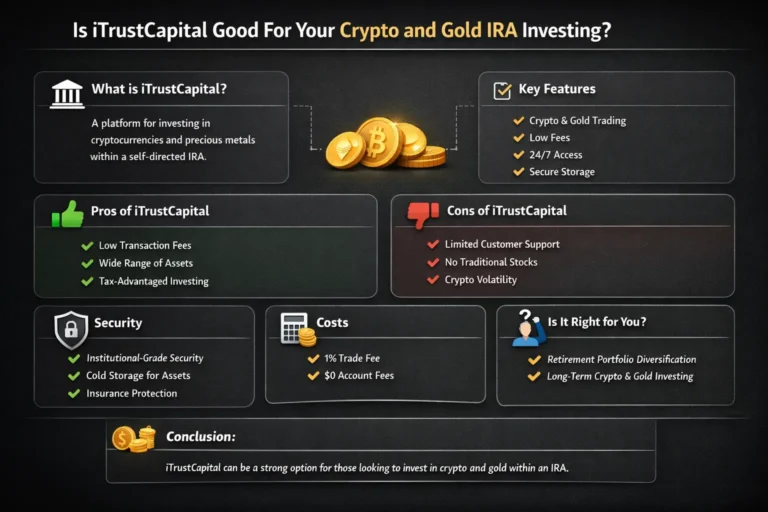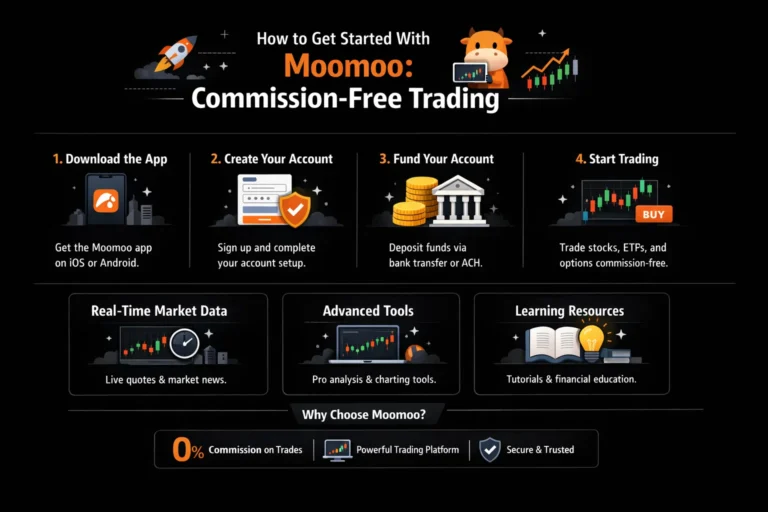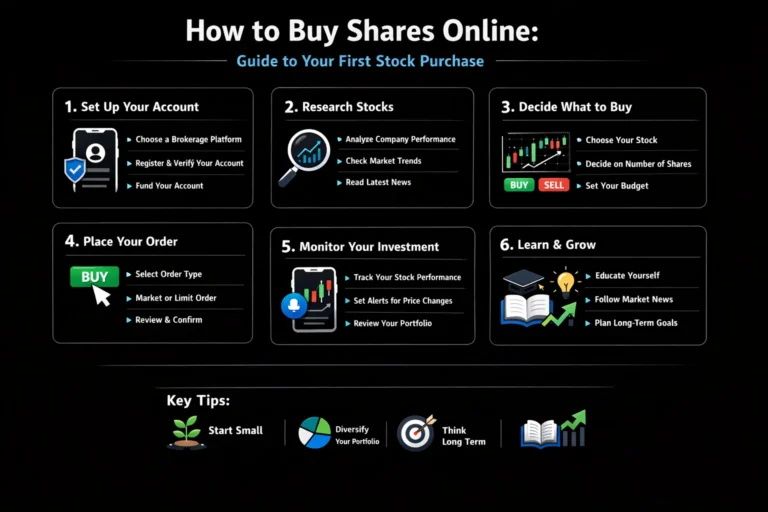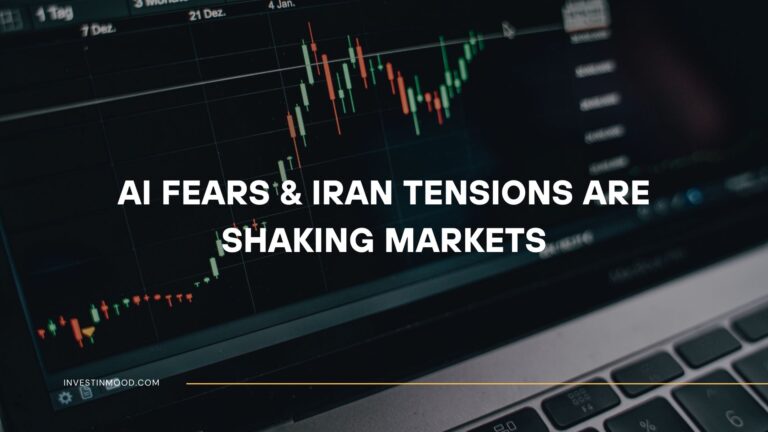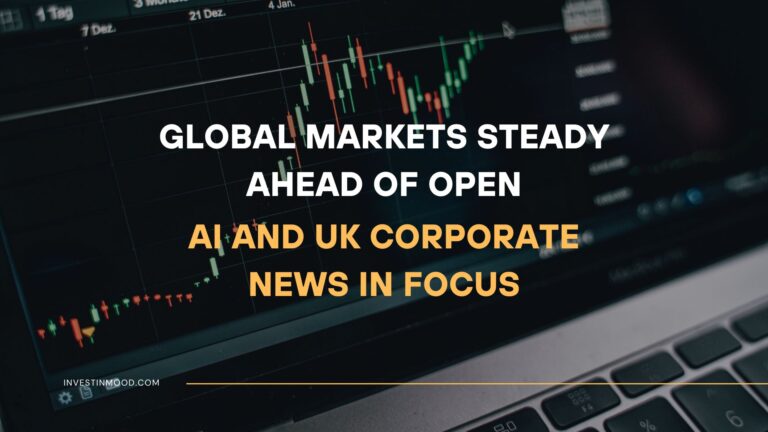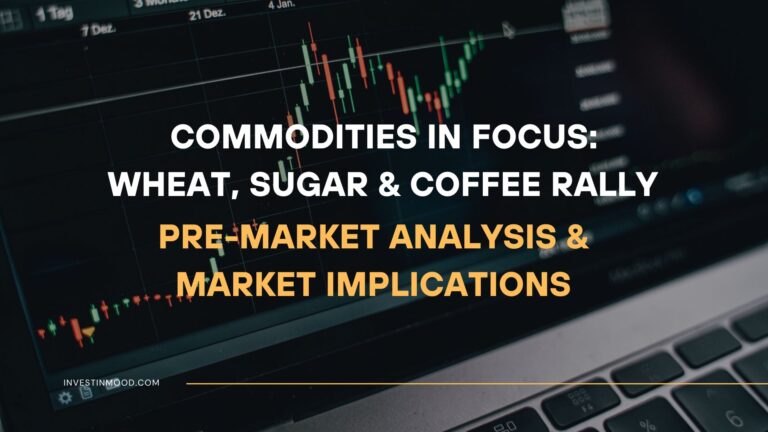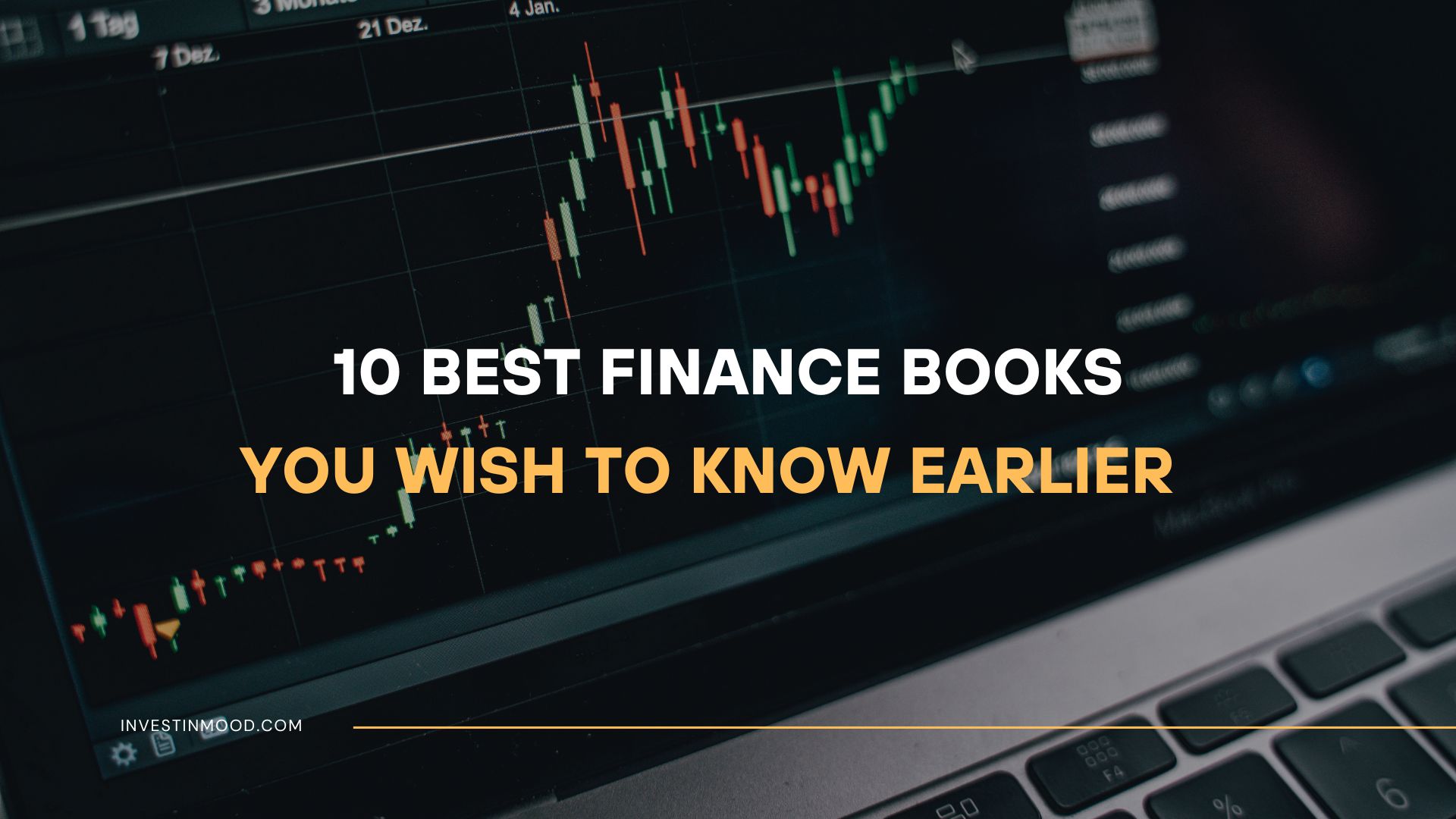
10 Best Finance Books You Wish to Know Earlier
Taking control of your financial future starts with the right knowledge. This guide cuts through the thousands of options to review the best personal finance books and investing classics available. We help you find the perfect read for your goals, whether you’re looking to get out of debt, build wealth, or achieve financial freedom, with recommendations tailored for readers in the US, UK, and Canada.
What are the Finance Books
The best finance books are not just manuals for making money; they are foundational texts that reshape your mindset about wealth, risk, and value. They provide a framework for understanding personal finance principles, from basic budgeting and getting out of debt to advanced concepts like value investing and behavioral economics. Think of them as a low-cost mentorship, offering decades of wisdom and proven strategies that can help you build a solid financial foundation and make smarter decisions with your money.
Key Takeaways
Goal-Based Book Selection
| Your Primary Goal | Best Book Type | Key Feature to Look For |
|---|---|---|
| Getting Out of Debt | Action-Oriented System | A strict, step-by-step plan with motivational messaging. |
| Building Wealth & Investing | Foundational Investing Philosophy | Teaches timeless principles like value investing or index fund strategies. |
| Changing Your Money Mindset | Behavioral & Psychological | Focuses on the psychology of spending, saving, and wealth. |
| Achieving Financial Independence | Modern FIRE & Lifestyle | A roadmap to early retirement and building passive income streams. |
| Entrepreneurial Wealth | Business & Mindset | Teaches how to build assets and think like a business owner. |
For readers in the UK, look for books that discuss ISAs (Individual Savings Accounts) and UK-specific pension plans (SIPPs). US readers should prioritize books that cover 401(k)s, Roth IRAs, and the US tax code. Many of the principles are universal, but the specific vehicles differ.
How to Get the Most Out of a Finance Book
Simply reading a finance book isn’t enough. To truly transform your financial life, you need to engage with the material actively.
- Take Actionable Notes: Don’t just highlight. Write down the 3-5 most impactful actions you will take after finishing the book. Create a “To-Do List” based on the reading.
- Implement One Idea Immediately: Overwhelm is the enemy of progress. As soon as you read a concept you can use (e.g., “cancel one unused subscription,” “set up a automated transfer to savings”), do it within 24 hours.
- Re-Read the Classics: Books like The Intelligent Investor or The Psychology of Money reveal new layers of understanding on a second read. Revisit them annually to reinforce the principles.
- Join a Community: Discuss the book’s concepts in online forums like the Bogleheads.org forum or the Financial Independence subreddit. Teaching and debating concepts solidifies your understanding.
Top 10 Finance Books of 2026
We’ve analyzed the most influential and practical books on money to bring you unbiased, detailed reviews. Here are our top 10 picks for 2026, broken down by their core philosophy, ideal reader, and key takeaways.
1. The Total Money Makeover by Dave Ramsey
Overall Score: 4.8/5
Best For: People drowning in debt who need a strict, motivational plan.
Dave Ramsey’s “The Total Money Makeover” presents a no-nonsense, psychologically-driven approach to financial recovery that has helped millions escape debt and build wealth. The book’s core strength lies in its recognition that financial success is primarily behavioral rather than intellectual. Ramsey understands that most people know what they should do with their money but struggle with implementation due to emotional and psychological barriers.
Key Features:
- The 7 “Baby Steps” financial plan.
- The “Debt Snowball” method for paying off debt.
- Emphasis on behavioral change and accountability.
- Practical advice on budgeting using the “Envelope System.”
- Extremely Motivational: The “Debt Snowball” provides quick wins that keep you motivated to continue.
- Crystal Clear Plan: The “7 Baby Steps” leave no room for ambiguity; you always know what to do next.
- Focuses on Behavior: Understands that personal finance is 80% behavior and only 20% head knowledge.
- Debt Snowball is Mathematically Inefficient: Paying smallest debts first, regardless of interest rate, costs more in the long run than the “Debt Avalanche” method.
- Overly Conservative Investing Advice: His advice to invest only in growth stock mutual funds is considered outdated by many modern financial advisors.
- One-Size-Fits-All Approach: The plan is very rigid and may not suit everyone’s unique financial situation.
Why We Picked It: We chose The Total Money Makeover for its unparalleled success in helping people get out of debt. Its psychological approach is often the key that unlocks financial discipline for those who have failed with other methods.
2. The Simple Path to Wealth by J.L. Collins
Overall Score: 5.0/5
Best For: Beginner to intermediate investors who want a straightforward, powerful investing strategy.
J.L. Collins’ “The Simple Path to Wealth” originated from a series of letters to his daughter about money, creating an accessible, fatherly tone that demystifies investing for beginners. The book’s central thesis is that building wealth doesn’t require complexity, sophisticated strategies, or frequent trading. Instead, Collins argues for the overwhelming power of low-cost index fund investing, particularly through Vanguard’s offerings. He systematically dismantles common investing myths and demonstrates how the financial industry profits from complexity and frequent trading.
Key Features:
- Comprehensive guide to low-cost index fund investing and portfolio construction
- Detailed explanation of the “4% Rule” for retirement withdrawals
- Emphasis on financial independence and the FIRE (Financial Independence, Retire Early) movement
- Debunking of common investing myths and Wall Street propaganda
- Extremely Simple Strategy: Reduces investing to its most effective, straightforward components that anyone can implement
- Evidence-Based Approach: Backed by decades of market data showing index funds outperform most actively managed funds
- Focuses on What Matters: Eliminates noise and focuses on the few factors that actually determine investment success
- Too Simple for Some: Advanced investors might find the strategy overly basic and miss more complex strategies
- US-Centric Examples: Primarily focuses on US markets and investment vehicles, requiring adaptation for international readers
- Limited Debt Discussion: Doesn’t extensively cover debt management strategies for those struggling with high-interest debt
Why We Picked It: It demystifies investing and provides a lifelong strategy that anyone can follow, making it one of the best personal finance books for building long-term wealth.
3. The Psychology of Money by Morgan Housel
Overall Score: 4.9/5
Best For: Anyone who wants to understand the soft, human side of money and why people make irrational financial decisions.
Morgan Housel’s “The Psychology of Money” represents a paradigm shift in financial literature by focusing almost entirely on the behavioral and psychological aspects of money management rather than technical strategies. Through 19 compelling short stories, Housel explores the complex, often irrational relationship people have with money and demonstrates that financial success has less to do with intelligence and more to do with behavior, temperament, and understanding one’s own psychology.
Key Features:
- 19 narrative-driven chapters exploring different psychological aspects of money
- Emphasis on the role of luck and risk in financial outcomes
- Concept of “enough” and the danger of infinite social comparison
- Importance of margin of safety in financial planning
- Unique Perspective: Focuses on the psychological aspects of money that most finance books ignore
- Engaging Storytelling: Uses compelling narratives to make complex psychological concepts accessible and memorable
- Timeless Wisdom: The insights about human behavior will remain relevant regardless of economic conditions
- No Specific Action Plan: Doesn’t provide step-by-step instructions for managing money or investing
- Abstract Concepts: Some readers may find the psychological focus too theoretical without enough practical application
- Limited Technical Content: Doesn’t cover the mechanics of investing, budgeting, or other financial fundamentals
Why We Picked It: It’s a timeless masterpiece on financial psychology that will change how you view risk, greed, and happiness.
4. Rich Dad Poor Dad by Robert Kiyosaki
Overall Score: 4.5/5
Best For: Shifting your mindset from being an employee to thinking like an investor and business owner.
“Rich Dad Poor Dad” uses the powerful parable of two father figures to illustrate fundamentally different approaches to money, work, and life. The “Poor Dad” represents conventional wisdom—go to school, get good grades, find a safe job with benefits, save money, and invest in a diversified portfolio. The “Rich Dad” represents entrepreneurial thinking—make money work for you, understand financial statements, build assets that generate income, and continuously expand financial intelligence.
Key Features:
- The Cashflow Quadrant framework (E, S, B, I) for understanding income sources
- Clear distinction between assets and liabilities from a cashflow perspective
- Financial literacy foundation focusing on income statements and balance sheets
- Emphasis on financial education as the key to wealth building
- Powerful Mindset Shift: Effectively challenges conventional wisdom about jobs, security, and wealth building
- Inspiring Narrative: The story format makes complex financial concepts accessible and engaging
- Focus on Assets: Teaches the crucial distinction between assets and liabilities that most people misunderstand
- Lack of Specific Advice: Strong on philosophy but weak on practical, actionable steps to implement the concepts
- Questionable Examples: Some of the investment strategies mentioned are risky and not suitable for beginners
- Controversial History: Questions have been raised about the existence of Kiyosaki’s “Rich Dad” and some business practices
Why We Picked It: It’s arguably the most influential book for creating a wealth-building mindset, despite some criticism of its specific advice.
5. The Intelligent Investor by Benjamin Graham
Overall Score: 4.7/5
Best For: Serious investors who want to understand the philosophy of value investing.
Benjamin Graham’s “The Intelligent Investor” is widely regarded as the foundational text of value investing and has influenced generations of investors, most notably Warren Buffett, who calls it “the best book on investing ever written.” First published in 1949, the book establishes the principles of value investing—buying stocks for less than their intrinsic value with a significant “margin of safety.” Graham introduces the famous “Mr. Market” allegory to explain market psychology, depicting the market as an emotional business partner who offers to buy or sell shares at different prices each day, often driven by irrational optimism or pessimism.
Key Features:
- Value investing methodology and intrinsic value calculation approaches
- The “Mr. Market” allegory for understanding market psychology
- Margin of safety concept as the cornerstone of risk management
- Distinction between investment and speculation
- Time-Tested Principles: The value investing framework has proven successful for decades across market cycles
- Psychological Foundation: Teaches the emotional discipline required for successful long-term investing
- Comprehensive Framework: Provides a complete philosophy for analyzing and selecting investments
- Dense and Academic: Can be challenging to read and apply for beginners without financial background
- Dated Examples: Originally published in 1949, some examples and specific advice feel outdated
- Not for Passive Investors: The active approach requires significant time and effort to research individual stocks
Why We Picked It: It’s the foundational text for the world’s most successful investor and teaches principles that protect you from market folly.
6. Your Money or Your Life by Vicki Robin and Joe Dominguez
Overall Score: 4.6/5
Best For: Those seeking financial independence and a more meaningful relationship with money.
“Your Money or Your Life” transforms the conversation about money by framing it in terms of “life energy”—the precious, finite time and energy we exchange for money. The book presents a comprehensive 9-step program that goes beyond traditional budgeting to help readers achieve financial independence and align their spending with their deepest values. The central insight is that we should evaluate every expenditure not just in monetary terms, but in terms of the life energy required to earn that money and whether the purchase brings genuine fulfillment.
Key Features:
- Monthly tabulation system for tracking income and expenses
- The 9-step program to financial independence
- “Life energy” concept for valuing money in terms of time
- Real hourly wage calculation including all job-related costs
- Philosophical Depth: Goes beyond numbers to explore the relationship between money, time, and life satisfaction
- Values-Based Approach: Helps align spending with personal values rather than societal expectations
- Comprehensive System: The 9-step program provides a complete roadmap to financial independence
- Extreme Frugality Focus: Some readers may find the emphasis on cutting expenses to be too restrictive
- Dated Investment Advice: The original investment strategy (US Treasury bonds) is no longer optimal in today’s low-interest environment
- Time-Consuming Tracking: The detailed money tracking system requires significant ongoing effort
Why We Picked It: It’s the original FIRE (Financial Independence, Retire Early) movement book and remains a powerful guide to achieving financial freedom.
7. The Millionaire Next Door by Thomas J. Stanley and William D. Danko
Overall Score: 4.5/5
Best For: Understanding the true habits and characteristics of everyday wealthy Americans.
“The Millionaire Next Door” presents groundbreaking research that shatters common stereotypes about wealth in America. Based on decades of survey data and interviews, Stanley and Danko reveal that most millionaires are not the flashy, luxury car-driving, big-spending celebrities portrayed in media, but rather ordinary people living in middle-class neighborhoods who accumulated wealth through frugality, discipline, and smart financial habits. The book introduces the concepts of Prodigious Accumulators of Wealth (PAWs) and Under Accumulators of Wealth (UAWs), showing that high income doesn’t necessarily translate to high net worth.
Key Features:
- Research-based profile of typical American millionaires
- Prodigious Accumulator of Wealth (PAW) vs. Under Accumulator of Wealth (UAW) framework
- Seven common characteristics of wealth builders
- Economic outpatient care concept and its impact on wealth accumulation
- Data-Driven Insights: Based on extensive research rather than anecdotes or theories
- Debunks Myths: Counters the media portrayal of wealthy people as big spenders and celebrities
- Practical Habits: Identifies specific behaviors that lead to wealth accumulation over time
- Dated Research: The original research is from the 1990s and some findings may not reflect current economic realities
- Repetitive Structure: The central thesis is repeated extensively throughout the book
- Limited Diversity: Primarily focuses on a specific demographic of American millionaires
Why We Picked It: It shatters the myth of the flashy millionaire and provides a data-backed blueprint for building wealth through frugality and smart financial habits.
8. I Will Teach You to Be Rich by Ramit Sethi
Overall Score: 4.7/5
Best For: Young professionals and beginners who want a no-apology, automated system for managing money.
Ramit Sethi’s “I Will Teach You to Be Rich” offers a modern, no-excuses approach to personal finance specifically designed for young professionals and beginners. The book presents a practical 6-week program that focuses on automation and “conscious spending” rather than traditional budgeting. Sethi’s philosophy is that you should cut costs mercilessly on things you don’t care about so you can spend lavishly on things you love.
Key Features:
- 6-week implementation program for financial setup
- Conscious spending plan as an alternative to traditional budgeting
- Automation strategies for bills, savings, and investments
- Specific negotiation scripts for lowering bills and fees
- Action-Oriented System: Provides specific scripts and steps to implement immediately
- Modern and Relevant: Addresses contemporary financial challenges like student loans and credit card rewards
- Psychology of Spending: The conscious spending plan is a more sustainable approach than traditional budgeting
- Aggressive Marketing: The book serves as a funnel for Sethi’s paid courses and products
- US-Centric Advice: Many specific recommendations (credit cards, banks) are only applicable to US residents
- Simplistic Investing: The investment advice is very basic and may not satisfy more advanced investors
Why We Picked It: It’s a modern, actionable, and highly effective system for people who are turned off by traditional, restrictive budgeting advice.
9. The Little Book of Common Sense Investing by John C. Bogle
Overall Score: 4.8/5
Best For: Investors of all levels who believe in the power of low-cost, passive index fund investing.
John C. Bogle’s “The Little Book of Common Sense Investing” presents the definitive case for low-cost index fund investing from the man who created the first index fund and founded Vanguard. Bogle makes a compelling, evidence-based argument that most investors would be better off owning the entire market through low-cost index funds rather than trying to pick individual stocks or active fund managers. The book systematically demonstrates how costs—management fees, transaction costs, taxes—erode returns over time and how the simple mathematics of investing favor the index approach.
Key Features:
- Comprehensive case for low-cost index fund investing
- Cost analysis showing how fees destroy returns over time
- Evidence against active fund management performance
- Simple portfolio construction using index funds
- Authoritative Source: Written by the founder of index investing and Vanguard
- Compelling Evidence: Presents overwhelming data supporting the superiority of index funds
- Focus on What Matters: Emphasizes the few factors (costs, diversification) that actually determine investment success
- One-Sided Argument: Presents only the case for passive investing without acknowledging potential limitations
- Redundant for Some: If you’ve read other Bogleheads literature, much of the content will be familiar
- Limited Advanced Strategies: Doesn’t cover more complex portfolio management techniques for larger portfolios
Why We Picked It: It’s the definitive argument for a simple, proven investment strategy that beats most professional fund managers over the long run.
10. The Richest Man in Babylon by George S. Clason
Overall Score: 4.4/5
Best For: Absolute beginners who need to understand the most fundamental rules of money.
George S. Clason’s “The Richest Man in Babylon” uses ancient Babylonian parables to impart timeless financial wisdom in an engaging, story-based format. Originally written as a series of pamphlets in the 1920s, the book has endured because of its simple yet profound principles presented through memorable stories. The book follows Arkad, the richest man in Babylon, as he shares his wisdom about building wealth regardless of starting circumstances. The parables teach fundamental principles like “pay yourself first,” “control thy expenditures,” “make thy gold multiply,” and “guard thy treasures from loss.”
Key Features:
- Ancient Babylonian parables illustrating financial principles
- Seven cures for a lean purse (fundamental wealth-building rules)
- Five laws of gold (investment and wealth preservation principles)
- “Pay yourself first” as the foundation of wealth accumulation
- Engaging Format: The parable format makes dry financial concepts memorable and enjoyable
- Timeless Wisdom: The fundamental principles are as relevant today as they were in ancient times
- Perfect for Beginners: Simplifies complex financial concepts into easy-to-understand stories
- Dated Language: The archaic “thy” and “thou” language can feel awkward to modern readers
- Limited Specifics: Provides principles but lacks detailed implementation advice for modern financial systems
- Simplistic View: Doesn’t address complexities of modern investing, taxes, or retirement planning
Why We Picked It: Its simple, story-based format makes complex financial principles easy to understand and remember, making it a perfect first finance book.
A Real-World Example: From Debt to Financial Independence
Consider Sarah, a marketing manager with $25,000 in credit card debt and no savings. She felt trapped by her paycheck-to-paycheck lifestyle. After reading The Total Money Makeover, she implemented the “Debt Snowball” method. She listed her debts from smallest to largest and focused all extra cash on the smallest one while making minimum payments on the rest. The psychological win of paying off that first debt kept her motivated. She then read The Simple Path to Wealth and started automatically investing in a low-cost S&P 500 index fund. Within four years, she was debt-free and had a growing investment portfolio, putting her on the path to financial independence.
Beyond the Books: Applying Your Knowledge
Reading is the first step. Here’s how to bridge the gap between knowledge and action in the real world.
- Open the Right Accounts: If your book advocates index fund investing, the next step is to open a brokerage account (e.g., with Vanguard, Fidelity, or a UK platform like Vanguard UK or Hargreaves Lansdown). Don’t let analysis paralysis stop you—just start.
- Set Up Automation: The golden thread in most modern finance books is automation. Set up automatic transfers from your checking account to your savings and investment accounts right after you get paid. This makes wealth building effortless.
- Track Your Net Worth: Use a simple spreadsheet or a free tool like Empower’s dashboard to track your net worth monthly. Watching this number grow is incredibly motivating and proves your new knowledge is working.
- Find an Accountability Partner: Share your goals and the concepts you’re learning with a trusted friend or partner. Having someone to check in with dramatically increases your chances of success.
Finance Books vs Financial Podcasts/Blogs vs Financial Advisors
While books provide deep, foundational knowledge, other resources can complement your financial education. Here’s how they compare:
| Feature | Finance Books | Financial Podcasts/Blogs | Financial Advisors |
|---|---|---|---|
| Depth of Knowledge | High (Comprehensive systems) | Medium (Specific topics/updates) | Varies (Personalized advice) |
| Cost | Low (One-time purchase) | Free | High (Ongoing fees or commissions) |
| Interactivity | Low | Medium (Community, Q&A) | High (Direct consultation) |
| Ideal For | Building a core philosophy and long-term strategy | Staying current, finding community, and quick tips | Complex situations, behavioral hand-holding, and estate planning |
Related Terms:
- Asset Allocation: The strategy of dividing your investment portfolio among different asset categories, such as stocks, bonds, and cash. A core concept in investment strategy books.
- Compound Interest: The process where the earnings on an investment are reinvested to generate their own earnings. Often called the “eighth wonder of the world” and a central theme in many wealth building books.
- Financial Independence (FI): The state of having sufficient personal wealth to live without having to work actively for basic necessities. The end goal of the philosophies in many modern finance books.
- Index Fund: A type of mutual fund or ETF with a portfolio constructed to match or track the components of a financial market index. Heavily advocated in books by Bogle and Collins.
- Behavioral Finance: A field of study that combines psychology and economics to explain why people make irrational financial decisions. The entire premise of books like The Psychology of Money.
Frequently Asked Questions
Ready to build your financial library? The best way to start is to pick one book from our list that resonates with your biggest financial challenge. The ROI on a $15 book that changes your financial life is immeasurable. Once you’ve absorbed the knowledge, the next step is to put your plan into action with a broker that fits your strategy. Check out our reviews of the Best Online Brokers for Beginners to get started.
Recommended Resources
- For a deeper dive into index investing, visit the Bogleheads Wiki, a fantastic free resource built on the principles of John Bogle.
- To understand the security of linking your bank accounts to financial apps (as mentioned in many modern books), read the official security page for Plaid.com/security.
- The Mr. Money Mustache blog is a legendary free resource that expands on the concepts of financial independence from Your Money or Your Life.
